WorldTour relegation battle angers and confuses teams: 'It doesn't make any sense'
It's the elephant in the room that is causing all sorts of stress within team camps - even if some are pretending otherwise
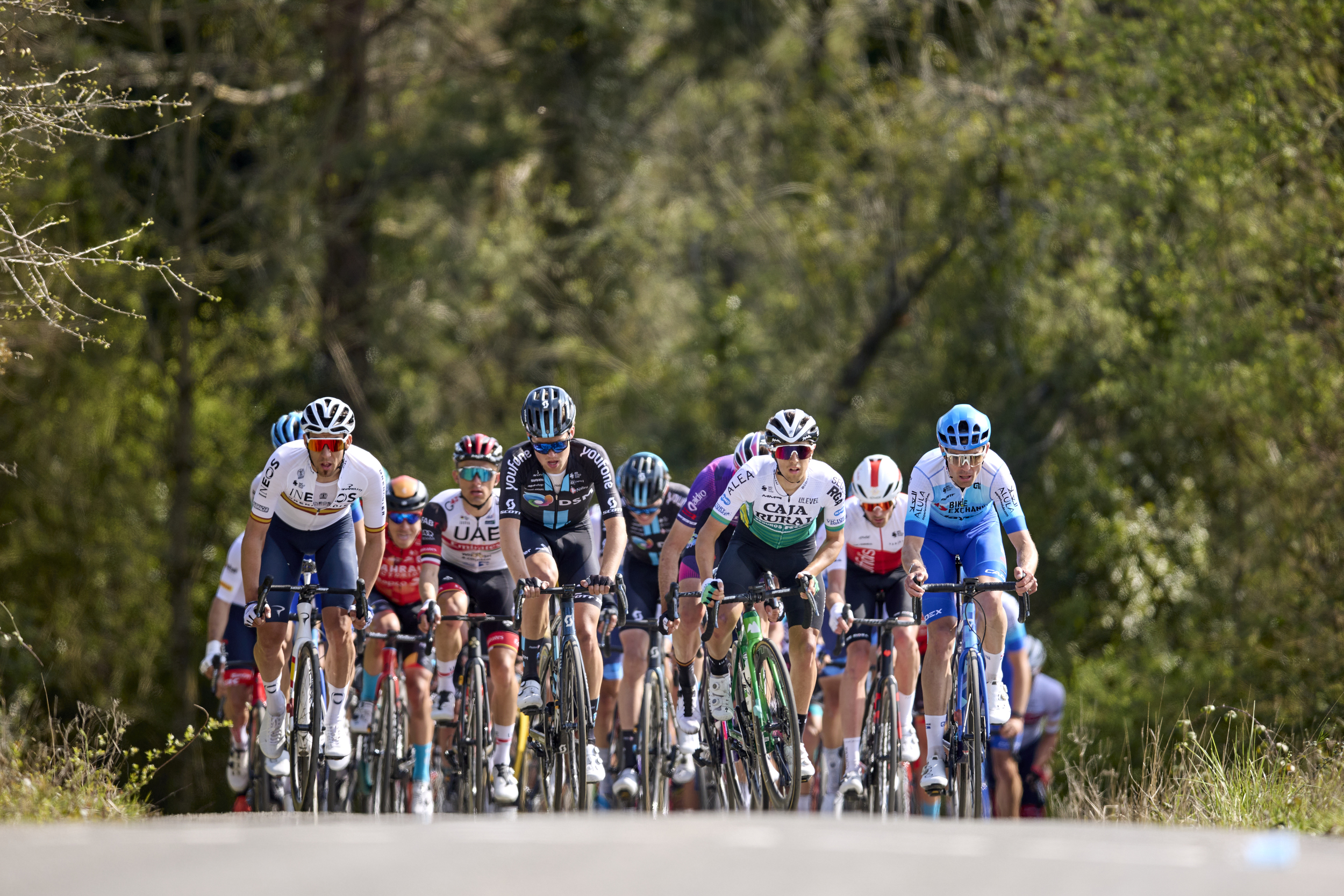

The battle to avoid relegation from the men's WorldTour ranks at the end of this season has many teams questioning the ranking system, some in denial about their position, and others admitting that it's having a direct influence on how riders are approaching races.
For the first time ever, next year's three-term WorldTour licences will be awarded to the teams who are in the top-18 of the UCI's rankings based on results over the past three seasons.
At the time of writing, according to the points counted up by Lanterne Rouge, there are arguably eight teams involved in the battle to avoid relegation, with Israel-Premier Tech and Lotto-Soudal both currently sitting in the relegation zone and facing the prospect of having their top-tier licence revoked come 2023.
The former are just over 500 points in arrears to Cofidis who occupy the 18th and final spot, while Lotto-Soudal are currently more than 900 points adrift. Both outfits must overtake the team in 18th or hope that one of BikeExchange-Jayco, Movistar, EF Education - EasyPost, Intermarché-Wanty-Gobert Matériaux, and Arkéa-Samsic replace them in the drop zone. One sports director who Cycling Weekly spoke to predicted: "it will become a messy fight."
"We don't want to get relegated, it's as simple as that," said Matt White, head sports director of BikeExchange-Jayco. "It's not really been on my mind until this year, but I don't believe the points system is appropriate. It's totally stacked in favour of one-day races."
As a quick guide, a rider winning a stage of a WorldTour stage race, such as this week's Tour of the Basque Country, would earn 50 UCI points; fourth-place picks up nothing. For comparison, a rider winning a UCI 1.2 one-day race, where WorldTour teams rarely enter, earns 40 points, and the rider in 10th collects three points.
To further illuminate the point, a rider who wins a Grand Tour stage is awarded with 120 points, and someone who finishes fifth on a stage of a Grand Tour will accrue five UCI points for their team; they would achieve 10 points should they finish 12th at a 1.2 race, more commonly raced by Continental and development teams.
Get The Leadout Newsletter
The latest race content, interviews, features, reviews and expert buying guides, direct to your inbox!
"The points system needs overhauling," White added. "It doesn't make any sense that a 1.1 race has such value. Some of these races have three WorldTour teams. How is that worth more than a stage of the Tour de France? If one of our guys finishes fourth today, a WorldTour race, they get nothing, but they could go to Volta Limburg, a 1.1, finish 10th and get 20 points."
"It makes heaps of sense, eh," he sarcastically said. "It's crazy."
How the battle is affecting rider schedules
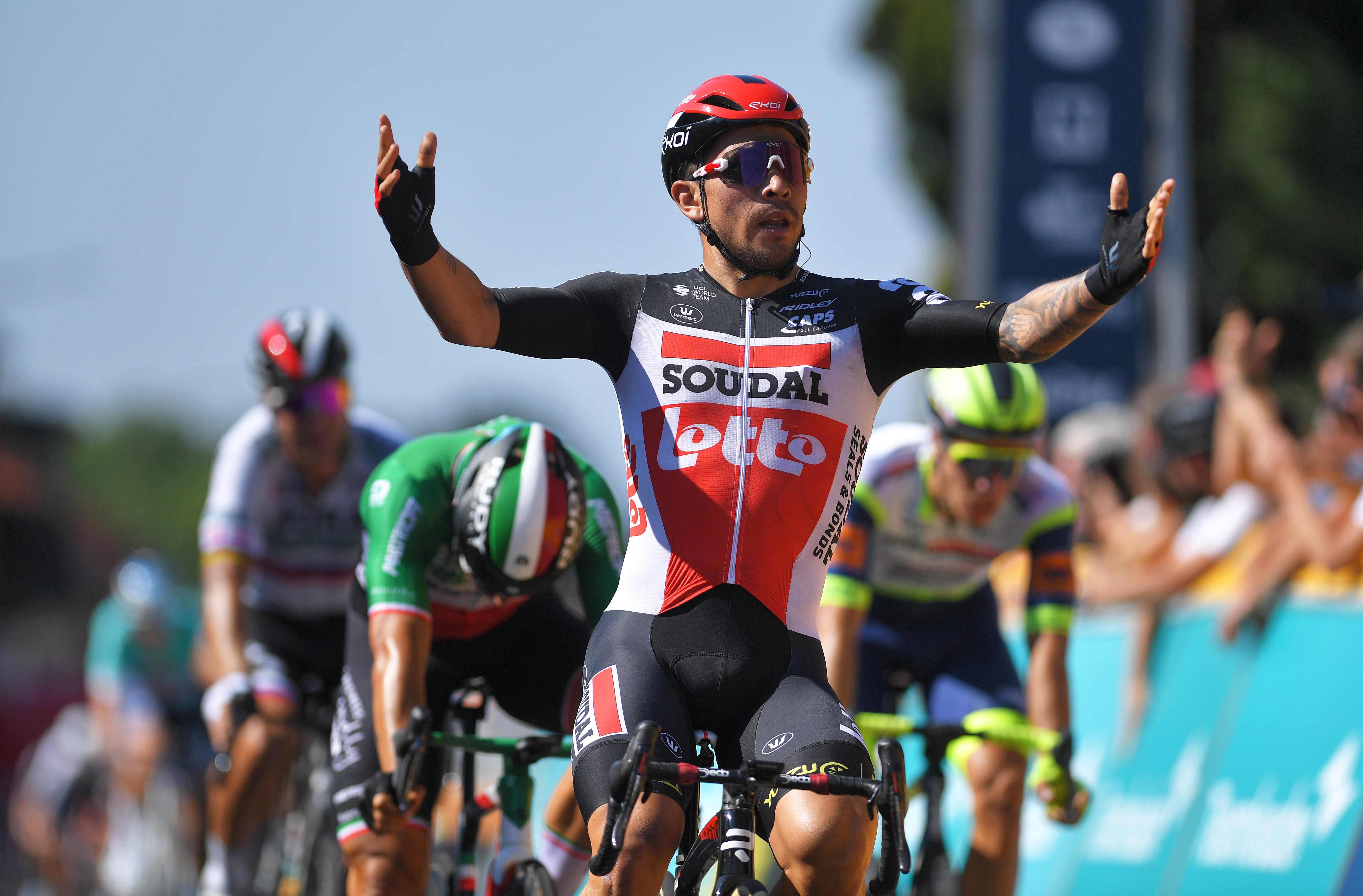
Caleb Ewan has won three races this season so far, picking up 88 points. He'd have earned 85 points for finishing second against predominantly second- and third-tier riders at a 1.1 race.
The ranking system and how it's weighted is having a direct effect on where teams send riders.
Lotto-Soudal have won 10 races so far this season, but due to results in the past two years they are quite far adrift. Their star rider Caleb Ewan is racing next week's Tour of Turkey where he could feasibly win six stages. That, though, would only earn him a collective total of 120 UCI points; he would earn five more points if he went to and won the one-day 1.1 race Paris-Camembert, ridden by four WorldTour teams.
Choosing prestige over points is currently the Belgian team's approach, though. "It's a real fine balance," team DS Cherie Pridham said at the Tour of the Basque Country. "We have to think of the images and a sponsor's right to be proud of victories.
"You have to manage their expectation as well as points issues. Changing the program and riding more one day races makes more sense, but it's swings and roundabouts. We are well aware of the fact that we're in the relegation places but if you start every race thinking like that, putting pressure on people in the wrong place at the wrong time, it has a negative effect straight away. We know where we are, and we've started the season well, already winning 10 times."
White, though calm about the situation with his team in 17th almost 1,400 points better off than Israel-Premier Tech in 19th, admitted that the threat of relegation has had an impact on his own riders' programmes. "It definitely affects where we're sending riders. Definitely," he confirmed. "We're doing more one day races this year than we've ever done. We've never had pressure from sponsors to do these small one-day races that are usually a chore to get to. We've always had the mindset that specific training is more important than going to competitions just to get points, so we've had to adjust this year to make sure we get into the top-18."
Cofidis, meanwhile, have won seven races so far this season, the eighth most of all teams, but have not won any WorldTour races. At Paris-Nice, they finished seventh and ninth on GC to accumulate 250 points, but Ion Izagirre in seventh was almost five minutes behind winner Primož Roglič.
"Now, it's better to have two guys in the top-10 of a GC, rather than commit with one rider for a podium and risk losing everything on day one," Cofidis' Simon Geschke said. "Obviously, we're trying to score more points, and getting more riders in the top-10 is one way. It's something we cannot ignore. We need points, but we're not very stressed about it as we've already been collecting lots this year."
That approach, however, is something that Lotto-Soudal's Harry Sweeney disagrees with. "You see some of the ProTour teams and other guys in the relegation zone and they're trying to get as many guys in the top-10 instead of winning the race," he said. "I don't think that's in the spirit of pro cycling. If we start riding to fight a relegation battle, well then it's not really cycling. Cycling is racing to win."
White agreed with his compatriot. "So Flanders, for example," he continued. "In the past once a rider has done their job they'd sit up, but if you finish 50th at Flanders you get 10 points. What do you achieve by finishing 45th at Flanders? Nothing. But now, if you finish 50th in five WorldTour one-day races, that's 50 points. If five riders do that, it's 250 points. The systems needs overhauling."
The peculiarity of the rankings has left Jack Bauer of BikeExchange-Jayco confused. "You'd have thought Lotto-Soudal would be going well: Ewan has won a few times, Tim Wellens too. I don't really know what the UCI are doing with this. What was the idea? To level the playing field? It's hard enough to win a bike race as it is."
What is worth more points?
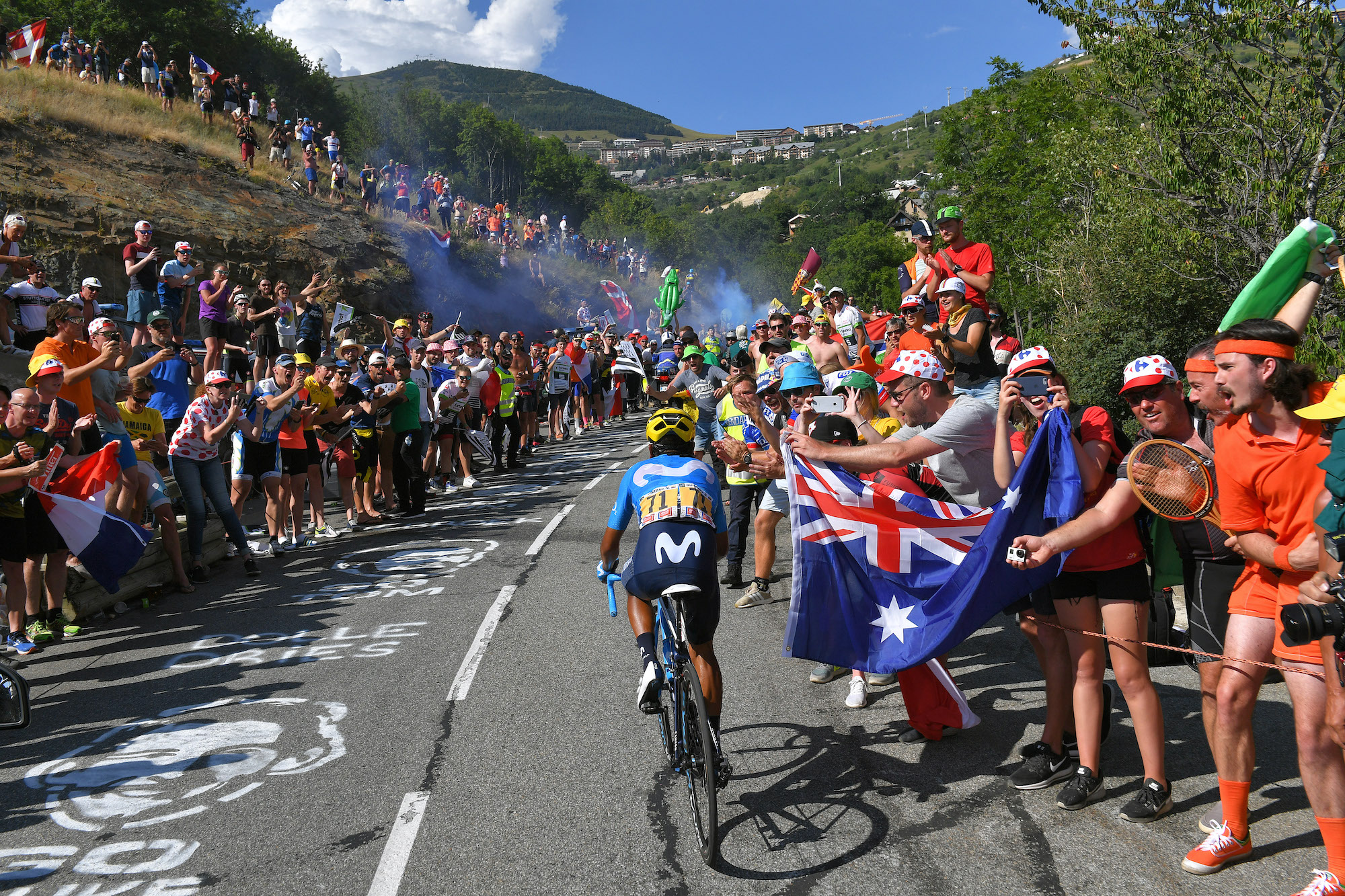
If a rider finishes fifth on a mountain stage of the Tour de France, they ought to be pretty chuffed with their work. They'd also collect five UCI points in the process. Somewhat bizarrely, however, they'd earn 10 UCI points for finishing sixth at a UCI 1.2 race, where the competition is almost exclusively reserved for Continental, development and national teams.
At this May's Giro d'Italia, whoever finishes tenth after three gruelling, stressful weeks will be awarded with 140 UCI points. If they want to better that tally without having to do a lap of Italy against some of the world's fiercest competition, they'd be better off going to a 1.Pro race, such as the GP du Morbihan, and finishing second where they'd earn 150 points. The GP du Morbihan attracted three WorldTour teams in 2021.
The financial impact
The consequences of potentially being relegated stretch further than no longer having an automatic invitation to the world's biggest bike races.
To refer back to Ewan - a winner of 11 Grand Tour stages and arguably the fastest man in the world - he would probably not want to ride for a ProTour team. He has a contract with Lotto-Soudal until the end of the 2024 season, but Pridham, while not discussing specifics, admitted that "every rider has his right to potentially have it in their contract [that they can be released should the team not be in the WorldTour]. Who knows what would happen."
Financial problems, unfortunately, are never far from cycling; indeed, Astana-Qazaqstan have already failed to pay their riders on time this season.
White referred to the issue: "I don't know how sponsorships are sorted in other teams, but teams in the past have had contracts based on you being in the WorldTour - and it's the same with riders. I would think that most teams would have clauses in there, but it's never something we've had to worry about before.
"We've got 20 teams putting their hand up to join the WorldTour, and what's to say that if one team doesn't make it, their owner won't just pack up and walk away? We have 20 teams wanting to put money into the sport to do the best races. We've never had this before where more people want the licence than don't, and they [the UCI] are cutting that out."
In denial?
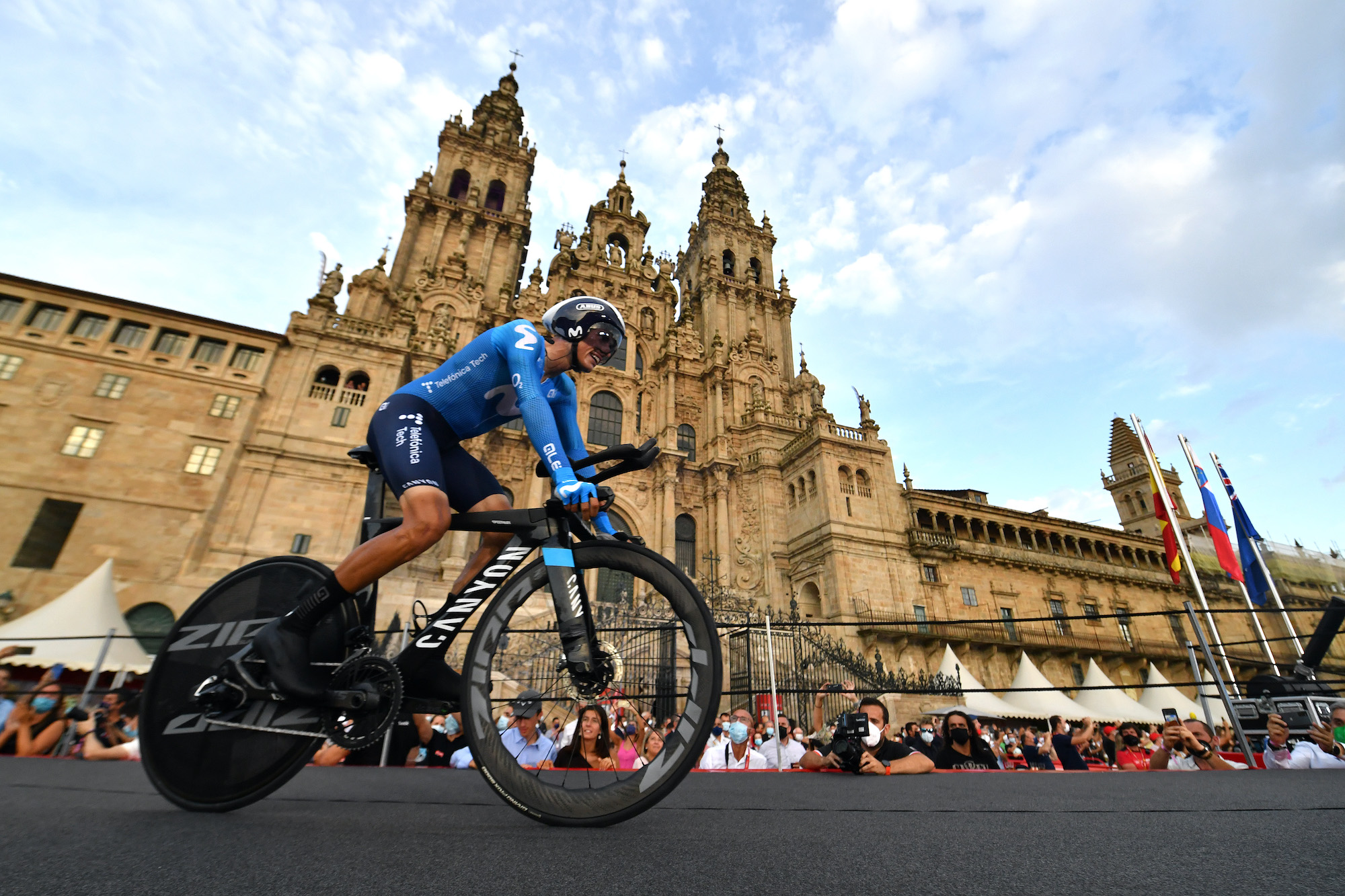
Enric Mas will be crucial to Movistar keeping their heads above the drop zone.
Whatever the alleged problems with the ranking system, not all riders are concerned with the position of their team.
Despite Israel-Premier Tech currently facing demotion after a slow start to the season that they attribute to the amount of illness and injuries within their camp, three of the team's riders that CW spoke to dismissed the severity of the situation.
Alessandro De Marchi said: "It's bulls**t because it's really way too early to start thinking about this. it's early April - we have so many races in front of us."
Is it a topic that they are consciously aware of? "Of course because even if it's something we don't want to talk about, people are asking, journalists are writing about it. But as I say we are not stressed about it - we're just thinking about what is coming up.
"Of course [it can affect the racing], but it depends on the type of rider. I'm not a guy who will look for three points. It's not affecting me and I will race like I always have."
Gregor Mühlberger's Movistar are around 1,500 points better off than Israel-Premier Tech, and they know that if Enric Mas can finish on a podium of a Grand Tour again like he did at last year's Vuelta a España, that will earn them between 575 and 1000 points.
It's for this reason that Mühlberger dismissed any talk of tension. "We don't feel any pressure," he insisted. "Everyone of us wants to do well. We are here to win races, not to lose them. Every race we should at least try to win, and that's normal. Wins count, you know."

Thank you for reading 20 articles this month* Join now for unlimited access
Enjoy your first month for just £1 / $1 / €1
*Read 5 free articles per month without a subscription

Join now for unlimited access
Try first month for just £1 / $1 / €1
A freelance sports journalist and podcaster, you'll mostly find Chris's byline attached to news scoops, profile interviews and long reads across a variety of different publications. He has been writing regularly for Cycling Weekly since 2013. In 2024 he released a seven-part podcast documentary, Ghost in the Machine, about motor doping in cycling.
Previously a ski, hiking and cycling guide in the Canadian Rockies and Spanish Pyrenees, he almost certainly holds the record for the most number of interviews conducted from snowy mountains. He lives in Valencia, Spain.
-
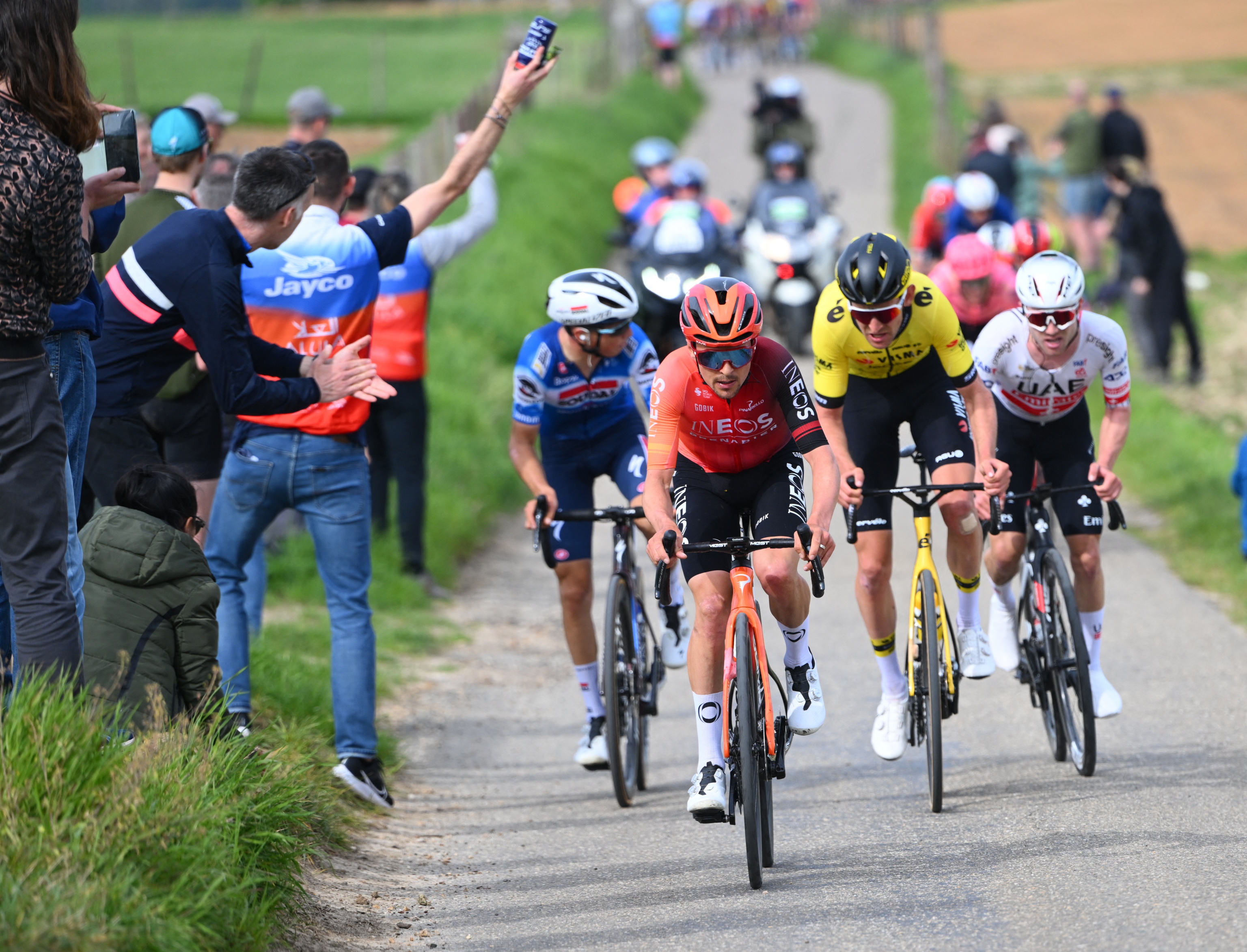 How to watch the Amstel Gold Race 2025: Everything you need to live stream the Dutch Classic
How to watch the Amstel Gold Race 2025: Everything you need to live stream the Dutch ClassicAll the broadcast information for the first of the Ardennes Classics on 20 April with Tom Pidcock – here's how to watch Amstel Gold Race online and on TV.
By Adam Becket
-
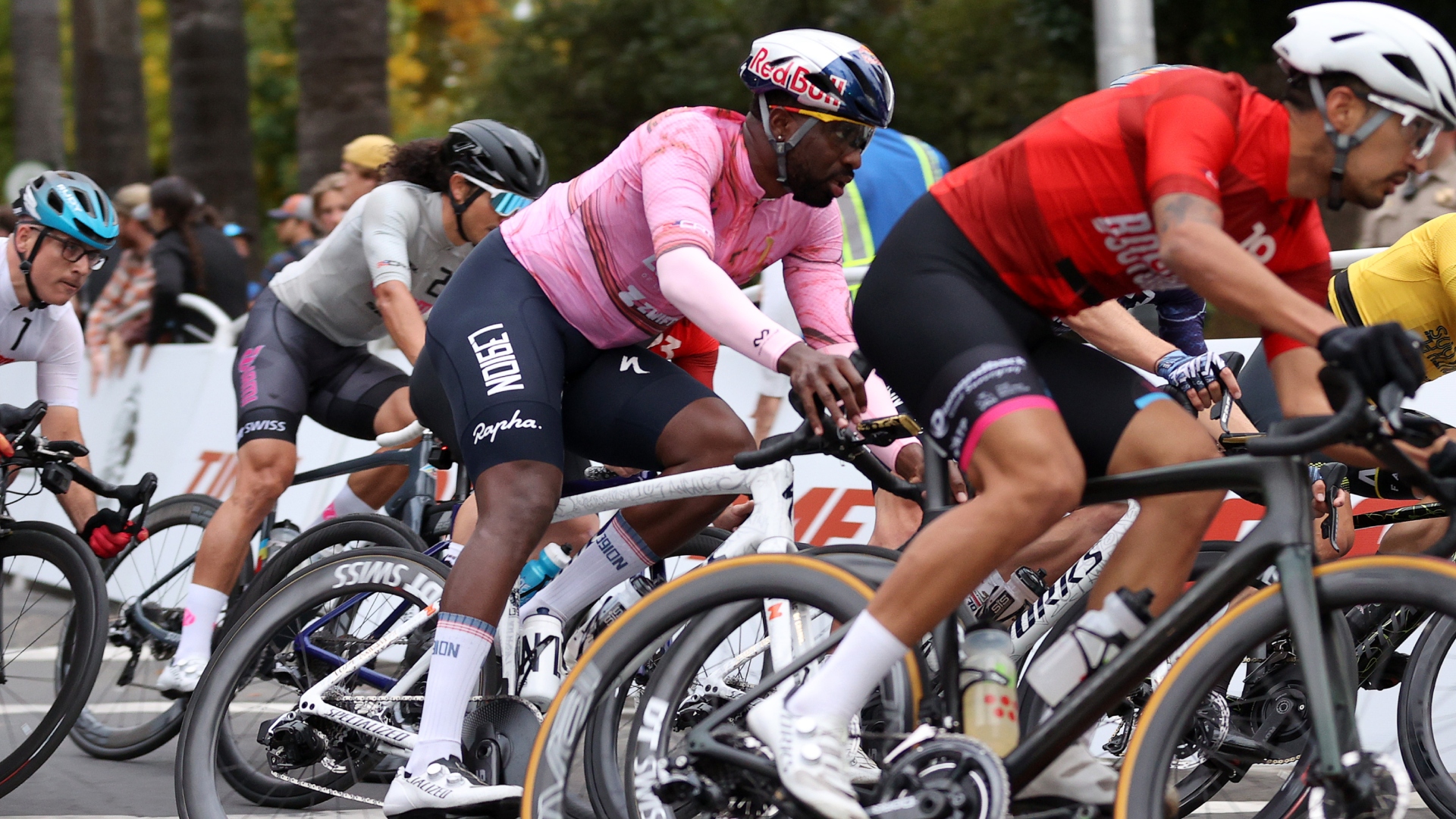 Can you make a living as an American domestic road racer? A look inside the part-time professionalism of the American road peloton
Can you make a living as an American domestic road racer? A look inside the part-time professionalism of the American road pelotonAfter decades of booms and busts, the American road scene finds itself in a fragile place. We spoke to riders to understand the reality of chasing the dream on home soil
By Logan Jones-Wilkins